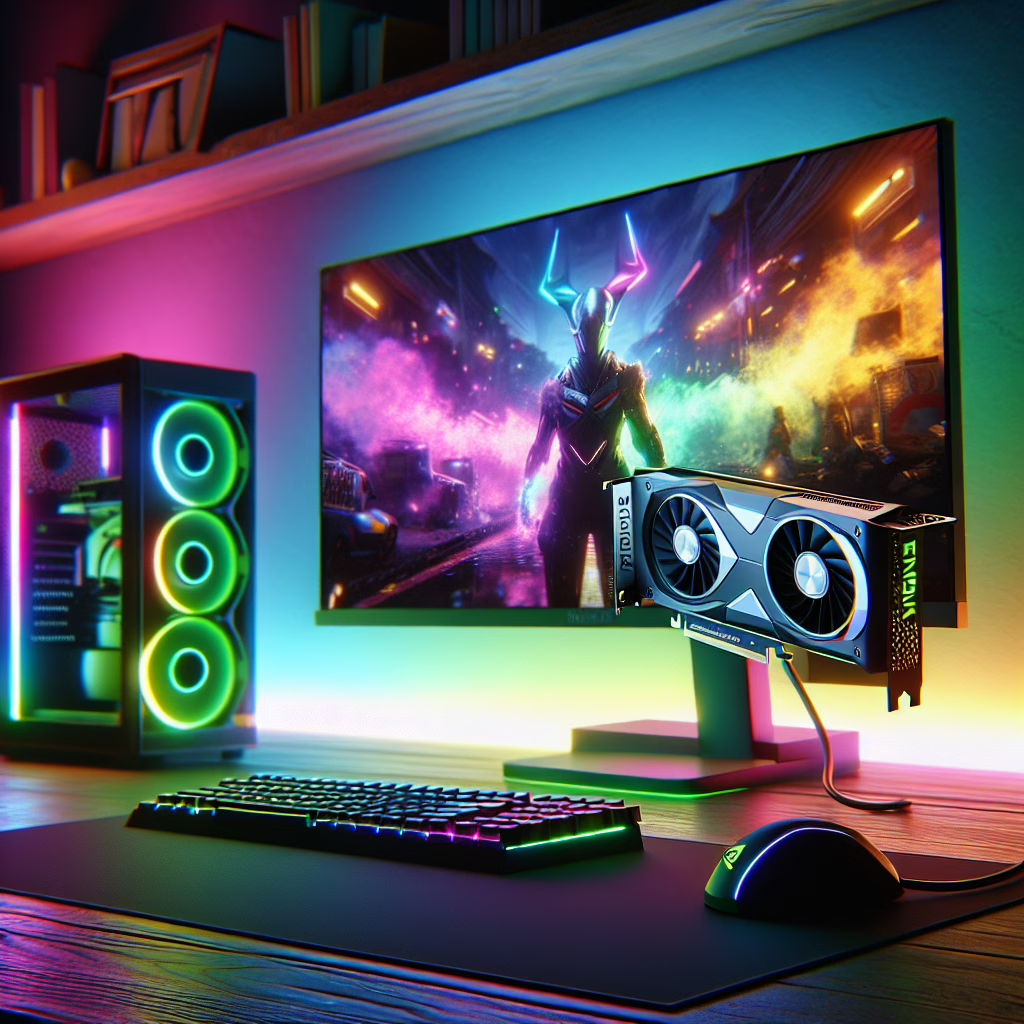If you’re a gamer or just someone who appreciates the beauty of high-quality graphics, the buzz around NVIDIA’s RTX 5060 Ti GPU has likely reached your ears. This shiny new graphics card is poised to revolutionize the gaming experience in 2025, and we’re here to break down the juicy details about its pricing and release date—while sprinkling in a bit of humor, of course!
What’s Cooking with the RTX 5060 Ti Pricing?
Let’s talk numbers! NVIDIA has decided to position the RTX 5060 Ti in a sweet spot for gamers. With an expected price tag around $299, it’s like finding that perfect avocado at the grocery store—not too mushy, not too hard. Just right for your wallet!
This pricing strategy is likely aimed at gamers who want an upgrade without having to sell a kidney on the black market. After all, who needs that pesky organ when you can have ray tracing?
The Release Date: Mark Your Calendars!
Now, onto the moment you’ve been waiting for—the release date! NVIDIA plans to unleash this beastly graphics card into the wild on February 15, 2025. Yes, you heard it right! Circle that date on your calendars, set reminders on your phones, and maybe even create a countdown clock—because this GPU will be worth the wait!
The anticipation surrounding this release is palpable. Gamers everywhere are eagerly refreshing their browsers like kids waiting for Christmas morning—only instead of toys, we’re getting cutting-edge technology!
What Makes the RTX 5060 Ti So Special?
So, what’s under the hood of this graphics powerhouse? The RTX 5060 Ti promises enhanced ray tracing capabilities that’ll make your games look so good you might forget to play them and just admire the scenery instead.
- Advanced Architecture: This new architecture means better performance and efficiency.
- Improved Ray Tracing: Experience stunning visuals with the latest ray tracing technology.
- Seamless Gameplay: Play your favorite AAA titles with ultra-settings effortlessly.
Imagine playing your favorite AAA titles with ultra-settings while sipping coffee on a lazy Sunday afternoon. Sounds dreamy, right? Well, dreams are about to become reality!
Why Should You Care?
Now you might be wondering why all this matters. Well, if you enjoy gaming or even just appreciate stunning visuals in movies or digital art, having a capable GPU like the RTX 5060 Ti could elevate your experience exponentially. It’s like going from dial-up internet to fiber optic broadband—once you’ve experienced the speed and clarity, there’s no going back!
Moreover, NVIDIA’s commitment to providing more accessible options means that even casual gamers can dive into high-performance gaming without breaking the bank. It’s about time we democratize graphics quality!
The Competition: Who Else Is in the Ring?
NVIDIA isn’t alone in this GPU showdown; competitors are also stepping up their game (pun intended). AMD has been making waves with their Radeon offerings, but with NVIDIA’s well-established reputation for performance and cutting-edge technology, they’re certainly a formidable opponent.
This rivalry not only pushes innovation but also keeps prices competitive—so we’re all winners here! Just think of it as a friendly neighborhood brawl where everyone walks away with awesome tech.
Final Thoughts: Ready for Upgrade Season?
The excitement surrounding NVIDIA’s RTX 5060 Ti is infectious! With an attractive price point and a release date that feels just around the corner, gamers everywhere should start preparing for an upgrade. Whether you’re an eSports enthusiast or a casual gamer who loves exploring virtual worlds, this card promises to enhance your experiences significantly.
Are you ready to embrace the future of gaming with NVIDIA? We want to hear from you! Share your thoughts in the comments below about how you plan to use your shiny new RTX 5060 Ti when it arrives.
A big thank you to The Verge for providing us with this information and fueling our excitement for what’s coming!
For more insights into the latest in the tech world, check out our posts like OpenAI Launches GPT-4.1 and Google Gemini Update for Wear OS.

